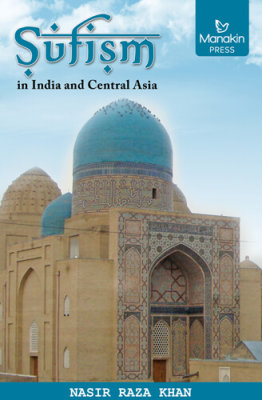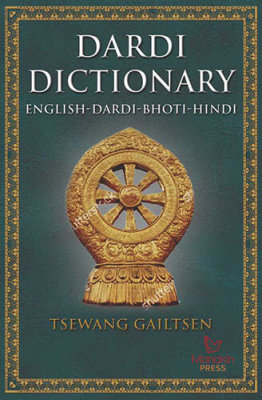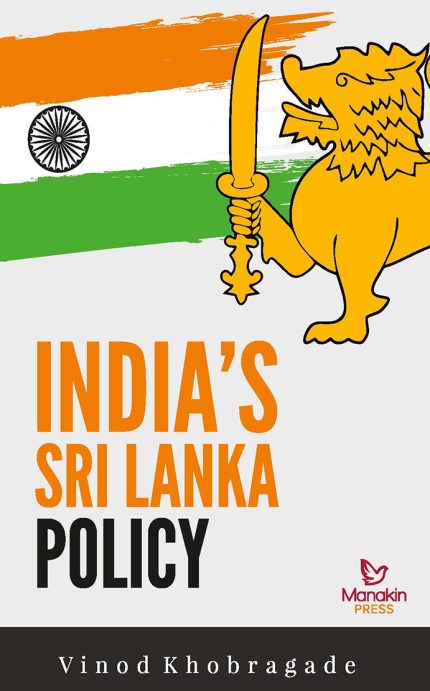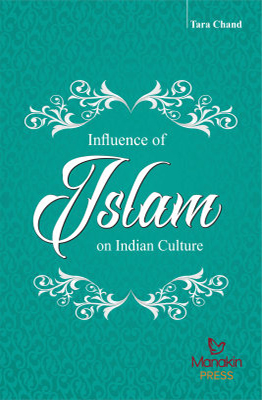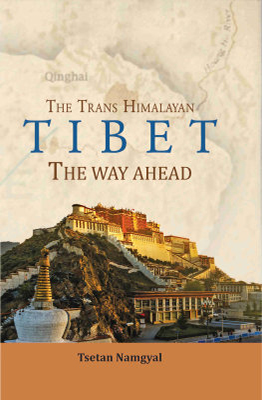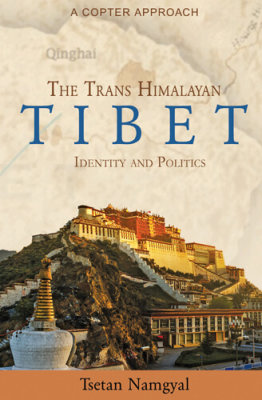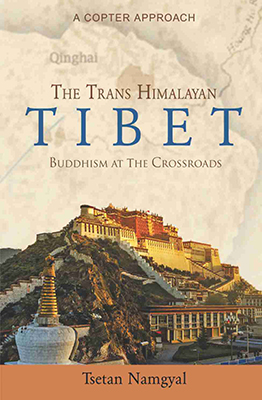Sufism in India and Central Asia
₹1,295.00
Nasir Raza Khan | Category: Social Science
Binding Type: Hard Binding
Book Details
ISBN: 9789384370657
YOP: 2017
Pages: 256
Order also on
Sufism in India and Central Asia is an attempt to put into perspective the relevance of Sufism — the concept and teaching, and to provide a realistic assessment of its role in India and Central Asia. The people of these regions with different ethnic backgrounds, cultures and languages have been intermingling for many centuries, as seen in the cross-current exchanges of religious ideas and belief. The word Sufism, popularly known as mysticism is most likely derived from the Arabic word suf (meaning “wool”), more specifically it means “the person wearing ascetic woollen garments.” Sufism is deeply rooted in Islam and its development began in the late 7th and 8th centuries. Sufism remains an important strand as a calming influence even in the context of violence and terrorism in the name of Islam. Their impact on many parts of the world is so deeply rooted that it forms a significant part of popular religious beliefs and practices. The present volume is a compilation of chapters, which attempted to look for answers to questions in relation to Sufism in India and Central Asia and to evaluate its relevance in the contemporary period. A group of distinguished scholars from India and Central Asia have contributed papers to this volume. The volume has been divided into four main sections viz, India-Central Asia and Turkey Cultural Exchange through the Agencies of Sufis; Regional Sufi Centres and their Interconnections; Sufi Traditions in Contemporary Central Asia, and Teachings of Sufis and Communal Harmony. In each section, the authors have emphasized the different elements of Sufism in India and Central Asia. This volume will be useful to students and researchers working on the social and cultural aspects of India and Central Asia.
INDIA-CENTRAL ASIA: CULTURAL EXCHANGE
1. Introduction
2. Sufis in India and Central Asia during the Thirteenth and Fourteenth Century
3. Sufism: Cementing Bonds between Central Asia and Kashmir
4. The Role of Sufis in Diplomatic Relations between the Khoqand Khanate and India
5. Khwaja Badruddin Samarqandi: Founder of Firdausi Silsiah in India
REGIONAL SUFI CENTRES AND THEIR INTER-CONNECTIONS
6. Sufis in Jammu and their Cultural Impact
7. Kalimat al-Sadiqin: a Sufi Biographical Account
8. Central Asia to India: Immigration of Sufis and Urbanization
9. Sufism in Bengal: Interactions and Impacts through the Ages
SUFI TRADITIONS IN CENTRAL ASIA AND CAUCASUS
10. Sufism and Religious Syncretism in the History of Central Asia
11. The Style of Persian Sufi prose XI – XIII centuries
12. Significance of Abd-ur-Rahman Jami’s Sufi-Poetic Discourse in the Literary Legacy of Medieval Persia
13. The understanding of self and others in teachings of Sufism by Najmuddin Razi (1177-1252
TEACHING OF SUFIS AND COMMUNAL HARMONY
14. Shaikh Sharfuddin Bu Ali Qalander Panipati’s Contribution for the Development of Composite Culture in Panipat during 14th Century
15. The Theme of Perfect Human in Sufism
16. Sufism in Karnataka: An Analysis of Shishunala Sharif
Photo Plates
Bibliography
Index
Sufism in India and Central Asia is an attempt to put into perspective the relevance of Sufism — the concept and teaching, and to provide a realistic assessment of its role in India and Central Asia. The people of these regions with different ethnic backgrounds, cultures and languages have been intermingling for many centuries, as seen in the cross-current exchanges of religious ideas and belief. The word Sufism, popularly known as mysticism is most likely derived from the Arabic word suf (meaning “wool”), more specifically it means “the person wearing ascetic woollen garments.” Sufism is deeply rooted in Islam and its development began in the late 7th and 8th centuries. Sufism remains an important strand as a calming influence even in the context of violence and terrorism in the name of Islam. Their impact on many parts of the world is so deeply rooted that it forms a significant part of popular religious beliefs and practices. The present volume is a compilation of chapters, which attempted to look for answers to questions in relation to Sufism in India and Central Asia and to evaluate its relevance in the contemporary period. A group of distinguished scholars from India and Central Asia have contributed papers to this volume. The volume has been divided into four main sections viz, India-Central Asia and Turkey Cultural Exchange through the Agencies of Sufis; Regional Sufi Centres and their Interconnections; Sufi Traditions in Contemporary Central Asia, and Teachings of Sufis and Communal Harmony. In each section, the authors have emphasized the different elements of Sufism in India and Central Asia. This volume will be useful to students and researchers working on the social and cultural aspects of India and Central Asia.
INDIA-CENTRAL ASIA: CULTURAL EXCHANGE
1. Introduction
2. Sufis in India and Central Asia during the Thirteenth and Fourteenth Century
3. Sufism: Cementing Bonds between Central Asia and Kashmir
4. The Role of Sufis in Diplomatic Relations between the Khoqand Khanate and India
5. Khwaja Badruddin Samarqandi: Founder of Firdausi Silsiah in India
REGIONAL SUFI CENTRES AND THEIR INTER-CONNECTIONS
6. Sufis in Jammu and their Cultural Impact
7. Kalimat al-Sadiqin: a Sufi Biographical Account
8. Central Asia to India: Immigration of Sufis and Urbanization
9. Sufism in Bengal: Interactions and Impacts through the Ages
SUFI TRADITIONS IN CENTRAL ASIA AND CAUCASUS
10. Sufism and Religious Syncretism in the History of Central Asia
11. The Style of Persian Sufi prose XI – XIII centuries
12. Significance of Abd-ur-Rahman Jami’s Sufi-Poetic Discourse in the Literary Legacy of Medieval Persia
13. The understanding of self and others in teachings of Sufism by Najmuddin Razi (1177-1252
TEACHING OF SUFIS AND COMMUNAL HARMONY
14. Shaikh Sharfuddin Bu Ali Qalander Panipati’s Contribution for the Development of Composite Culture in Panipat during 14th Century
15. The Theme of Perfect Human in Sufism
16. Sufism in Karnataka: An Analysis of Shishunala Sharif
Photo Plates
Bibliography
Index
| Weight | 0.605 kg |
|---|---|
| Dimensions | 24.3 × 16.5 × 2.3 cm |
| yop |
2017 |
| subject-category |
Social Science |
| isbn |
9789384370657 |

